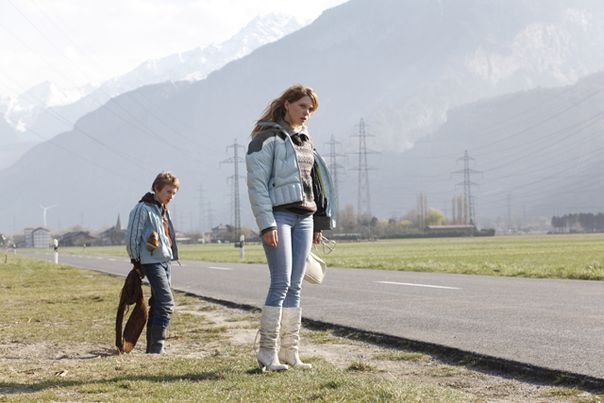Economic Hardship Turns Into Family Drama
Ursula Meier makes a strong impression in the Berlinale Competition with her sophomore feature SISTER.

Ursula Meier’s SISTER
Discovering the “Third World” within the global west in these times of economic and political instability has become a recurrent theme in recent movies. Robert Guédiguian‘s THE SNOW OF KILIMANJARO, Aki Kaurismäki’s LE HAVRE and Ruben Ostlund’s PLAY all explore economic inequalities and their resulting troubling social issues, unfolding within milieus that have long been considered prosperous and unproblematic. Ursula Meier’s second feature and Berlinale Competition entry SISTER (L’ENFANT D’EN HAUT, Switzerland 2011), veers in that direction, exposing the socio-economic alienation at the heart of a ski resort in the Swiss Alps.
That alienation takes the form of family dysfunction, a theme Meier also explored in her first feature HOME (Switzerland, 2008). But while the latter framed the story of a quirky family living in isolation on the side of a motorway into an absurdist, often laconic and dry portrait full of implicit humorous edges, SISTER takes a more melodramatic path, excavating deep into the psychological makeup and relationship dynamics of the characters. A young boy, Simon (Kacey Mottet Klein), supports himself and his jobless older sister (Leah Seydoux) by stealing ski equipment from well-off tourists. The sister can´t manage to hold down a job. Simon does his best to take care of her, but it´s clear she doesn´t give him the love he needs.
Kacey Mottet Klein gives an astonishing performance, spurring the narration forward. But the occasional melodramatic, and almost theatrically explanatory parts of the film prevent it from reaching both the absurdist detachment of Meier’s first feature, or the observational style of Ostlund´s film. In PLAY, Ostlund shows how a group of young boys from immigrant families in Gothenburg steal goods from privileged kids; instead of providing commentary or excess information, he leaves the viewer to connect the dots. Meier, on the other hand, never risks leaving anything unclear. She makes it all too easy for the viewer to guess the nature of the relationship between the siblings. That keeps the viewer from becoming alienated by excessively obscure plot developments, but it also prevents full engagement with the reality presented in the film.
SISTER offers moments of genuine feeling and light-hearted humour, and reveals the hidden shadows beneath the world of opulence shining like the white snow at the ski resort. However, with its heavy emotional load and much too straightforward narration, it never takes the risks that would turn it into a truly revelatory social study or a formally interesting piece of cinema.


301 Moved Permanently